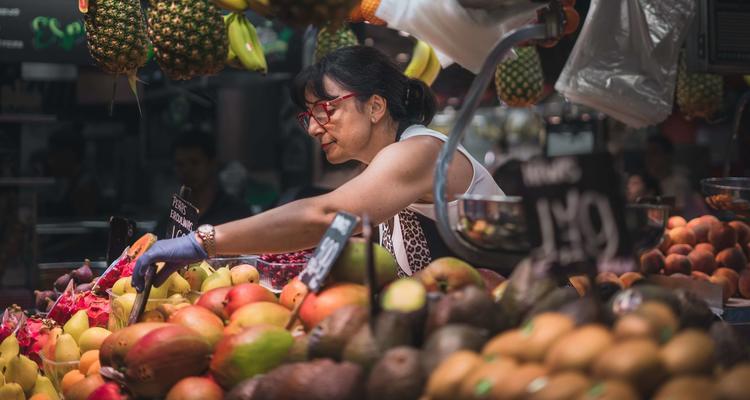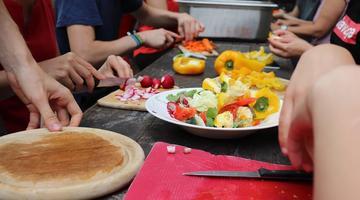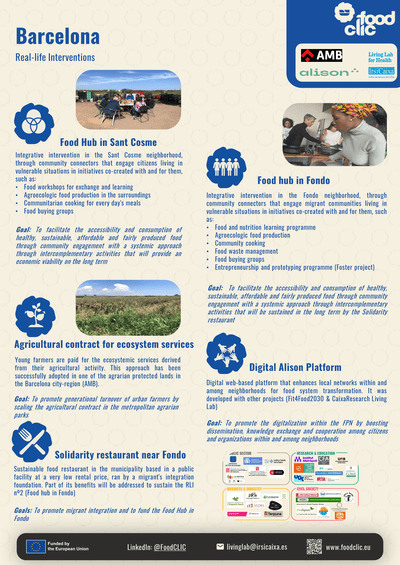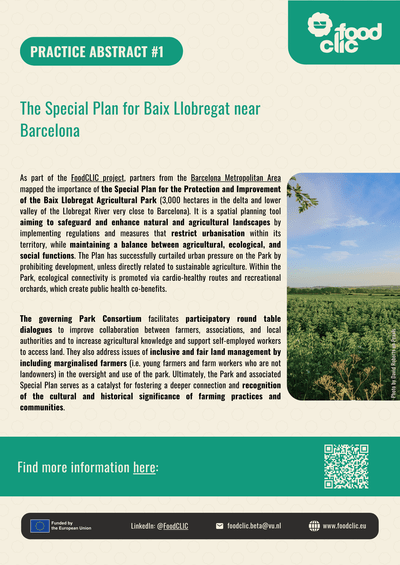
The Barcelona city-region food system.
The Metropolitan Area of Barcelona hosts actors of the agri-food industry and has a well-developed distribution network, including Barcelona’s port, dealing with large amounts of import and export goods.
Small businesses are losing market share at the expense of wholesalers and online retail having an increasing presence. Nevertheless, public street markets are key elements of the local infrastructure, providing fresh produce. Gastronomy can be seen as part of the cultural heritage of the region, with a wide range of high quality and diverse, traditional and innovative restaurants.
The city-region sees a need for improvement when it comes to people’s health and nutrition, as the prevalence of food-related diseases is on the rise, with more than 50% of men and 40% of women being overweight.
Food-related policies with a more holistic perspective are already being implemented and several public administrations in the city-region are now incorporating the food dimension into their public policies.

Quick facts:
The Metropolitan Area of Barcelona has 3.3 million inhabitants. Comprising an area of 636 km², it is one of the most densely populated metropolitan areas in Europe.
The city-region’s agricultural land represents only 2% of the whole territory and is mainly legally protected as agricultural parks.

A sustainable food system guarantees access to a healthy and environmentally friendly diet, with a balance of social, technological, economic, environmental and political aspects, and the coordinated participation of stakeholders from the private, research, public and civil society sectors.
Food Policy Network
The Metropolitan Area of Barcelona hosts a large number of regional and national associations that are active at different levels of the food chain.
Particularly noteworthy is the great diversity and number of actors pursuing social and solidarity-based economic approaches, engaging in transformation processes to achieve better food sovereignty.
On top of that, public administrations of the city-region (e.g. Generalitat de Catalunya, Diputació de Barcelona, Àrea Metropolitana de Barcelona, City Councils of the 36 municipalities, Consell Comarcal del Barcelonès) engage in the agri-food sector with a focus on internationalisation, research, development of agricultural spaces, commerce, public health, and water management, among others.
A coordination office for sustainable food has recently been created as an attempt to promote greater complementarity between policies developed at different administrative levels or in different sectors.
Project partners located in the Barcelona city-region:

Related Blog Articles
Related resources
FOODCLIC. We are connecting people, food, policy & places.
FoodCLIC is a four-year project funded by the EU. The project runs from September 2022 to February 2027. The acronym FoodCLIC stands for 'integrated urban FOOD policies – developing sustainability Co-benefits, spatial Linkages, social Inclusion and sectoral Connections to transform food systems in city-regions




